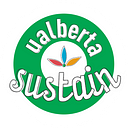Measuring social sustainability in affordable housing
Certificate in Sustainability alumna Meryn Severson puts social sustainability into practice at Capital Region Housing.
Originally published on June 19, 2019.
Hi, I’m Amanda Rooney and in this series I will be tracking down graduates of the Certificate in Sustainability to find out what they’re up to post-graduation. I hope it instills some excitement in any current students for your own futures!
A nearly ubiquitous model shows how sustainability is upheld by three pillars — environmental, economic and social. But Meryn Severson (BA 2017) worries that the social pillar is being left behind, both in academia and in practice.
“There’s been a pretty good conceptualization of environmental sustainability and economic sustainability, and well-developed measures that we can use for those — net-zero [energy buildings] and balanced budgets and stuff like that,” said Severson.
“But social sustainability is still a nebulous concept in a lot of ways. Comments are often made about social sustainability, but without a good understanding of what it means,” said Severson.
That’s why Severson is working to define and measure social sustainability.
After graduating from the University of Alberta with a Certificate in Sustainability, Severson was determined to find a way to apply her research skills, ideally in the housing sector. She quickly found the perfect job with Capital Region Housing.
As a policy analyst for Edmonton’s largest affordable housing provider, Severson is laying the foundation for a better understanding social sustainability. “It’s been really, kind of serendipitously awesome!” said Severson. “I honestly didn’t even really know that this could be a part of my job, where I would be directly working in social sustainability.”
Her work bridges neatly from her studies at the University of Alberta, with her first major research project diving into ground she had begun to explore for the certificate.
“Having the Certificate in Sustainability has been really helpful working for an organization that explicitly recognizes sustainability and the three pillars of sustainability,” said Severson.
Defining tenant wellbeing in affordable housing
This first project was to develop a framework that could be used to evaluate Capital Region Housing’s impact on social sustainability. According to Severson, most existing frameworks focus on evaluating built structures but fail to take tenant experiences and wellbeing into account. She and her colleagues wanted a more comprehensive model.
The framework begins with the primary focus for any affordable housing provider: securing tenants’ most basic need for a roof overhead. “The housing we are providing [must be] adequate, affordable, secure, and suitable for the people that are living in it,” said Severson.
With this base covered, they move on to look at achieving higher goals of social sustainability. For instance, they aim to support tenants’ food security, employment security, and income security. They also worked with the Sustainability Scholars program to develop measures for their framework.
Severson and her colleagues presented their framework for conceptualizing social sustainability at the Partnerships for Affordable Rental Housing conference in Calgary, last November. They are continuing the testing and development process for their framework which they hope will help raise the profile of social sustainability in the housing sector. “Sustainability is becoming a bigger concern for the housing sector. We hope to contribute to the conversation and understanding of sustainability and social sustainability in the sector,” said Severson.
Walking (and bussing) the talk
Speaking personally, as someone who is nearing the end of my undergrad, I was really excited to hear how Severson’s post-graduation path led her to a job with strong links to both her expertise and her passion, and somewhere she has been able to create change on a local level.
When not advocating for affordable and accessible housing as a human right, it is apparent that Severson lives her values. She told me that finding a work-life balance has been an ongoing challenge, but something that helps has been moving downtown. Spending less time in transit has improved her quality of life.
“My husband and I made the commitment to each other that we don’t want to move, I guess no more than 15 minutes from the core,” said Severson. “And as much as we can, we’re staying in a walkable and connected neighborhood.”
It’s all part of how Severson envisions a vibrant, connected city that promotes wellbeing for both herself and others.
“Transit is a more equitable form of transportation for a lot of people, especially when we can better connect where people live to where people work.”
If you’re inspired by Meryn, kick start your own career with the Certificate in Sustainability. It’s open to undergrads in most faculties, and can be completed without switching your current degree program.
